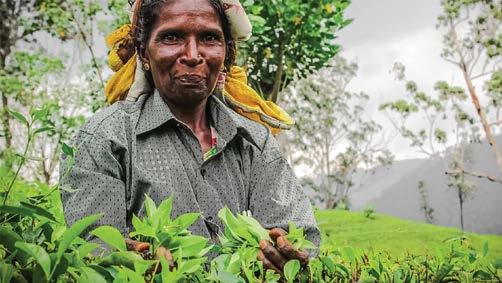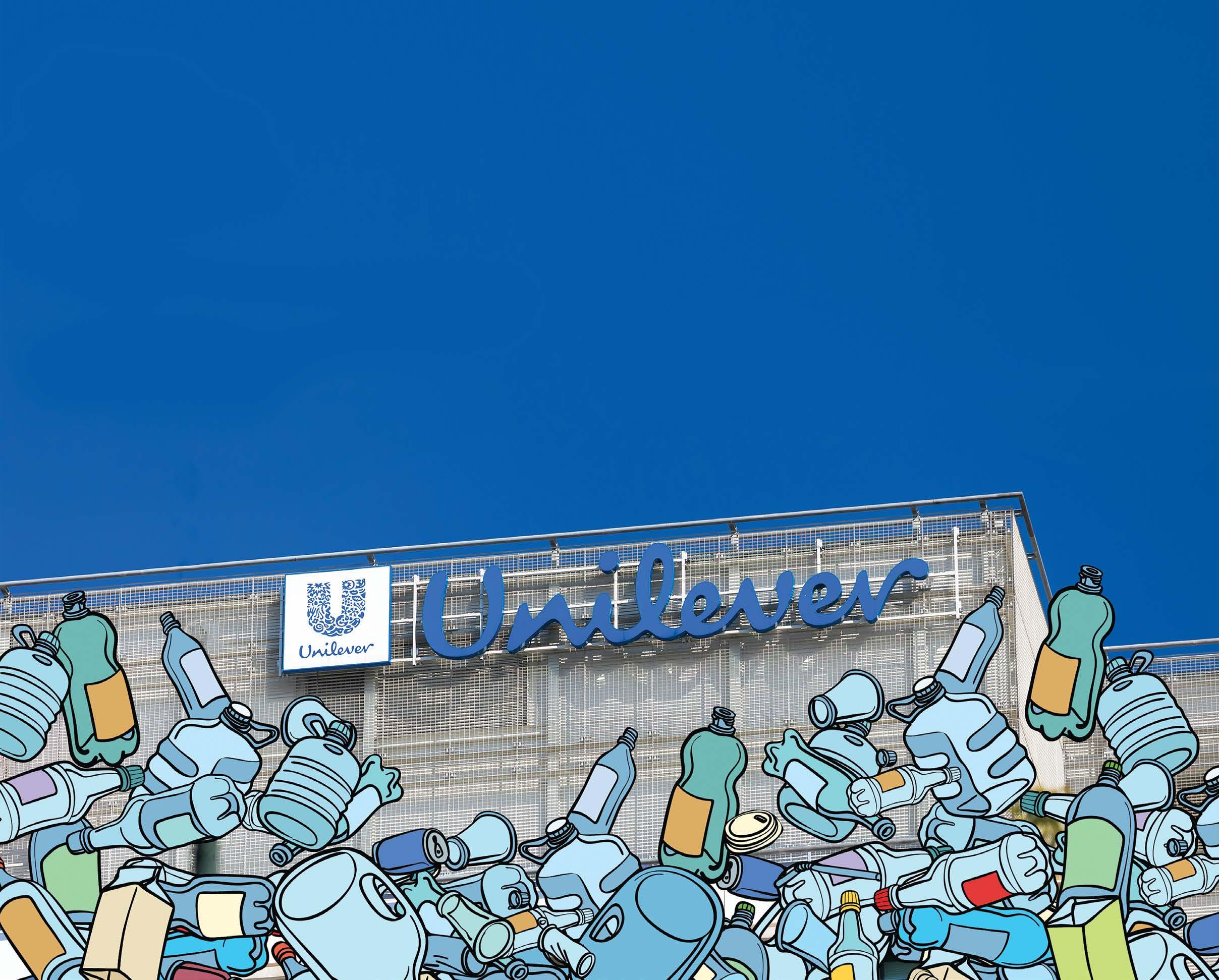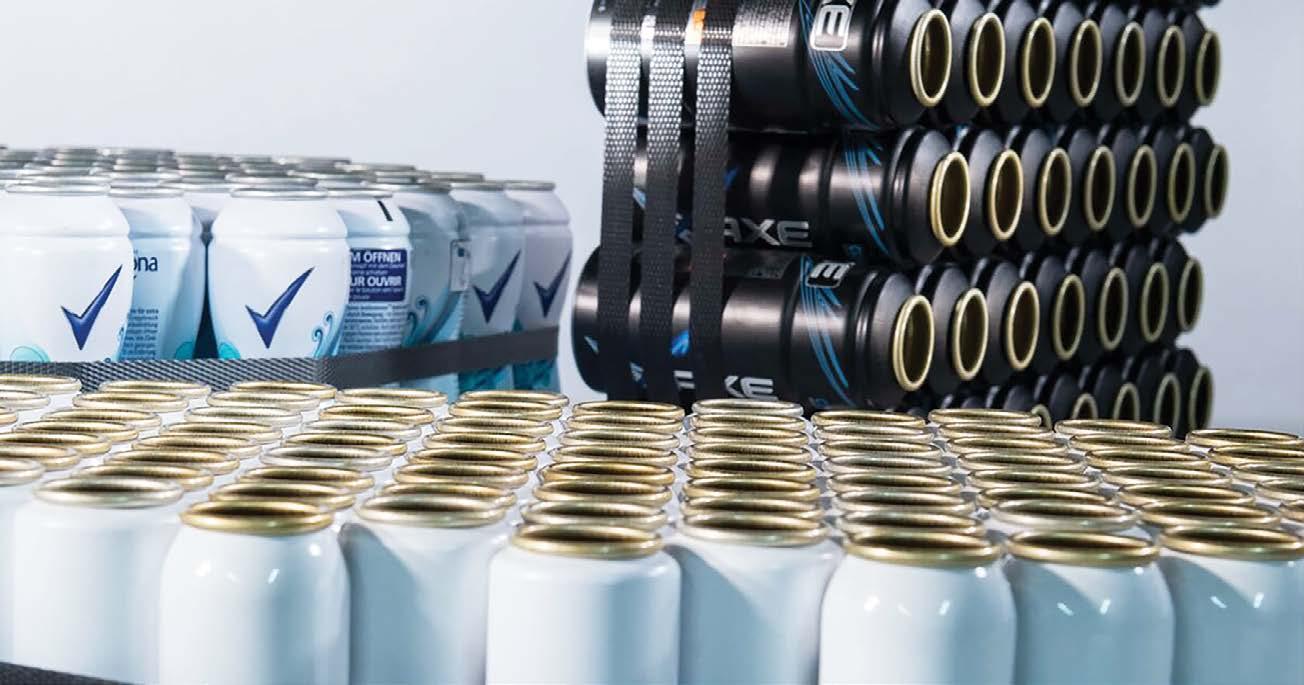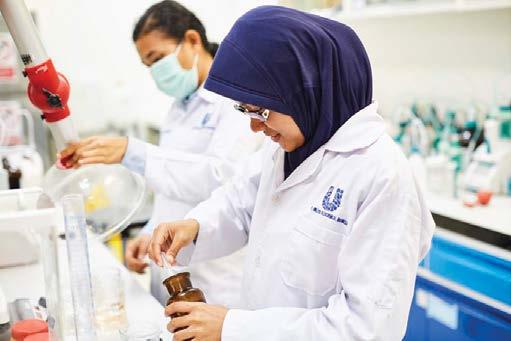
4 minute read
For a greener world Unilever
FOR A GREENER WORLD
Unilever launches a range of ambitious new commitments and actions to fight climate change, protect and regenerate nature, and preserve resources for future generations.


Unilever, the British-Dutch transnational consumer goods group has a truly global footprint. With its portfolio of food and beverages, cleaning agents, beauty products, and personal care products used by 2.5 billion people every day, Unilever’s brands have become a household name in around 190 countries.
The company is set to apply its global influence to help create a better world. In 2010, Unilever defined its Sustainable Living Plan that sets out to decouple the company’s growth from its environmental footprint, while increasing positive social impact. A lot has been achieved over the last ten years and despite a challenging 2020, Unilever remains firmly on track, creating positive change and promoting sustainable living for consumers throughout the world.
“While the world is dealing with the devastating effects of the Covid-19 pandemic, we can’t let ourselves forget that the climate crisis is still a threat to all of us,” says Unilever CEO Alan Jope. “Climate change, nature degradation, biodiversity decline, water scarcity – all these issues are interconnected, and we must address them all simultaneously.”
“In doing so, we must recognise that the climate crisis is not only an environmental emergency; it also has a terrible impact on lives and livelihoods. We, therefore, have a responsibility to help tackle the crisis: as a business, and through direct action by our brands.”
To accelerate action, Unilever’s brands will collectively invest €1 billion in a new dedicated Climate & Nature Fund, which they will use over the next ten years on initiatives that protect and improve the health of the planet. These could include projects that restore landscapes, reduce carbon emissions, or reforest and reinstate wildlife habitats.
“Our collective responsibility in tackling the climate crisis is to drive an absolute reduction in greenhouse gas emissions, not simply focus on offsetting – and we have the scale and determination to make it happen,” explains Marc Engel, Unilever Chief Supply Chain Officer. “But this is not enough. If we want to have a healthy planet long into the future, we must also look after nature: forests, soil biodiversity and water ecosystems.


Towards zero emissions
The Group has committed to halving the greenhouse gas impact of its products across their lifecycle and making all its product formulations biodegradable by 2030. The Group has also committed to removing ingredients derived from virgin fossil fuels by 2030, instead of using a variety of carbon sources.
For example, plant-based stain removers have been introduced into Unilever’s OMO detergent, also known as green carbon. In Chile and Vietnam, Unilever has launched a dishwashing liquid (Quix) with a new biosurfactant which is renewable, biodegradable and ultramild on hands. And in India, the first laundry powder (Surf Excel) made with soda ash from captured CO2, also known as ‘purple carbon’, has been launched.
In line with its plan to achieve zero emissions across its operations by 2030, Unilever is now working on expanding circular models which minimise waste and carbon emissions.
Its Pouso Alegre site in southern Brazil, for example, is Unilever’s first zero-carbon operational site in the Americas. Its two 500 sq


metre greenhouses use the factory’s plant-based waste to enrich their soil. Both greenhouses now produce enough vegetables to supply the factory’s restaurants two days a week.
Another great example is Unilever’s Ceytea site in Agarapathana, Sri Lanka. Today 73% of the waste produced by the site is used to create green energy, while the remaining 27% of spent leaf is turned into organic fertiliser which is used to replenish the surrounding tea gardens.

Making flexible plastics recyclable
Unilever is battling climate change and promoting environmental protection on many fronts. In the UK the Group has joined forces with four other branded manufacturers in the UK to launch The Flexible Plastic Fund – a new £1 million fund and cross-industry collaboration to drive flexible plastic collection and recycling in the UK, so it can be reused again and again.
The Fund’s ambition is to improve flexible plastic recycling and reduce plastic pollution by creating more value from the material. The Fund will guarantee a minimum price per tonne for all flexible plastic that is properly recycled and ready to be re-used in new plastic products. By incentivising investment in jobs and the infrastructure needed to create a circular model for flexi-recycling, the Fund will help flexible plastics to be kept out of the environment and instead be re-used back in products again and again.
Participating retailers Sainsbury’s and Waitrose have launched instore flexible plastic collection points in selected outlets throughout the UK, making it convenient and easy for customers to recycle their flexible plastics by bringing them back to the store. The collected plastic will then be transported to approved recyclers. n












